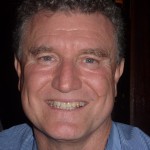“Far less than we know is needed”
What should the delegates at the Rio+20 summit agree on? What will the outcome most likely look like? That’s what we asked visitors of the UN conference. The United Nations Conference on Sustainable Development is going to end on Friday.
A stronger UNEP: Almost off the table?
Author: Kerstin Schnatz
How can we better tackle global environmental problems – such as the loss of biodiversity or air pollution? Many countries believe that the United Nations should have a bigger say in solving these problems – one of the most controversial issues at the Earth Summit at Rio de Janeiro, where over 115 world leaders come together to discuss global challenges.
The European Union for example favors an „upgrade“ of the United Nations Environmental Programme (UNEP) to the same level as more powerful UN bodies, such as the Food and Agriculture Organisation or the World Health Organisation.
But other nations are opposed to this change – including Brazil, host of the summit. According to non governmental organizations watching the Rio+20 negotiations closely, a full scale upgrade of UNEP is by now almost off the table.
German Environment Minister Peter Altmaier sticks to the European position:
“The only living thing that can be seen from the moon”

Don Henry, Australian Conservation Foundation
Interview: Kerstin Schnatz
The Australian Conservation Foundation (ACF) is Australia’s main environment group. With the United Nation’s Earth Summit starting this Wednesday, Global Ideas reporter Kerstin Schnatz spoke to ACF’s executive director Don Henry in Rio de Janeiro. The conference is also known as Rio+20 as it marks the anniversary of the first Earth Summit twenty years ago. Over one hundred world leaders are in Rio to seek answers to global challenges such as climate change or marine pollution.
Global Ideas: If there was one thing you were free to write into the Rio+20 final paper what would it be?
Don Henry: I think there is a very straightforward issue at the moment and that is cutting subsidies for fossil fuels around the world. In Australia, we have subsidies worth billions of dollars that go into making fossil fuels cheaper for the mining industry.
But I would love to also ensure there is much stronger investment into renewable energy and energy efficiency around the world. I’d really like to see the international financial institutions like the World Bank and the International Monetary Fund (IMF) cut any loan programms to the fossil fuel sector and really boost loan portfolios to renewables and efficiency.

Activists at the Rio+20 summit protesting against fossil fuel subsidies
What impacts of climate change do you feel in Australia?
In recent years, we have had some terrible bushfires that have killed a lot of people in extreme, hot weather that has never been seen before in Australia. If the world doesn’t act, our best scientists are saying we are going to get double the amount of droughts and they will be twice as severe over the next 20-30 years. That will also have a big impact on food production in Australia.
And another example, something that is dear to my heart: We are very privileged in Australia that we are the custodians of the Great Barrier Reef, the largest reef system on earth and the only living thing on the planet that can be seen from the moon. The Great Barrier Reef is at grave risk from climate change. The best science out there is saying if global average warming goes beyond two degrees, we will see a severe impact on the reef. It would be a tragedy if our generation allowed one of the great global treasures, the Great Barrier Reef, not to be handed on in good condition to our children.
What is the most important goal Australians have achieved in the last twelve months to tackle climate change?
We’ve had a very big effort from Australian civil society to put a price on carbon emissions. Our government last November passed legislation for a carbon trade scheme. The legislation is complemented by a ten-billion dollar investment into clean energy and a carbon farming initiative that rewards farmers for tree planting and for holding on to forest areas. That’s been an important step forward for us as a nation.
At a side event at Rio+20, nuclear power was promoted as a sustainable way of producing energy. What’s the perception of nuclear power in Australia?
When you look at whether nuclear power is a solution for climate change in Australia, most Australians would say the risk associated with accidents and long lived nuclear waste is not a solution to action on climate change.
Apart from that, Australia is lucky because we receive twice the amount of solar energy per square meter than Germany does. So we have huge potential for renewable energies. We also have extensive gas reserves – which is still a problem with emissions, but gas plants still have less emissions than coal. So I think most Australians feel we don’t have to go there and we shouldn’t.
Australia may not have any commercial nuclear power plants. But the country has a strong mining industry exporting uranium for nuclear power plants around the world.
ACF strongly opposes uranium mining. Because often the mines have been imposed on Aboriginal people, on Aboriginal land without their full consent.
There are also real problems with safety for workers at the mines. For instance one of the mines in the Northern Territory, the Ranger uranium mine, has got a legacy of hundreds of accidents that have affected workers’ health.

Indiginous land owner Yvonne Margarula in front of the Ranger uranium mine. The mining site is surrounded by world heritage listed Kakadu National Park.
And then there is another huge problem: What do you do with the radioactive waste from the mining process itself? For example, a condition of mining operations is they have to make safe the waste ponds for ten thousand years. Human beings are not good at making things safe for one hundred years, much less ten thousand years.
And of course many Australians are very worried with what happens with uranium from Australia overseas. We do know for example, it was Australian uranium in the Fukushima reactors. So in an indirect way, Australia has contributed to the problems associated with the accidents.
What are you expecting to come out of Rio+20?
We are very worried that it will be quite a modest outcome at a time when environmental degradation and sustainability issues are so urgent and pressing globally.
Pictures: Global Ideas/ Dominic O’Brien
Students for Sustainability

Student team of Cambridge University
Author: Kerstin Schnatz
Energy shortages in China, water scarcity in mega-cities or waste management in slums. There are plenty of environmental challenges in the world. But what are the answers for them? German engineering company SIEMENS asked young bright minds from all around the world to bring forward their solution to a local problem. The best ideas for a more sustainable world were awarded by a panel of experts in Rio de Janeiro. The city currently is host to the United Nations Conference on Sustainable Development – better know as Rio+20 or the Earth Summit.
Desalination to rescue the world?

Michaela Rizzo, Cambridge University
Before the event, we interviewed Michaela Rizzo from the United Kingdom. The young woman of Cambridge University believes that with sea-levels to rise and deserts to expand, the water problem will become more and more pressing. According to her, by 2025 four billion people will be living in water scarcity areas already. „As 97% of the world’s water resources are salty, desalination really makes sense“, she said.
Her project team had been studying a desalination plant in London, asking whether the technology was an apt solution to water infrastructure challenges in large cities.
Winning concepts in Rio
The negotiations in preparation of the Rio+20 congress are stuck. Only about 30% of the conference text could be agreed on so far. Especially the term „Green Economy“ is an ongoing point of discussion for which a winning concept cannot be seen yet.

The event “Students for Sustainability” was co-hosted by SIEMENS AG, the United Nations Environment Programme (UNEP) and Rio-based university COPPE/UFRJ.
At the „Students for Sustainability Award“ a winner was found after only two hours when Michaela’s team had to give way to the Chinese team. The students of Beijing’s Tsinghua University convinced with a project focusing on energy shortages in rural China. They proposed to reuse waste oil as biodiesel. “We aim at solving the problems both of diesel shortage and of waste oil disposal in China’s Yangtze River Delta region“, the lucky winners said.
New fuel for desalination plants
One of the big challenges of desalination plants, is the high use of energy. At the moment, the London plant uses mainly conventional diesel, Michaela’s team colleague admitted in the presentation. Replaced by biofuel such as promoted by the Chinese team, CO2-emissions of water desalination could be cut down tremendously.
Michaela meanwhile hopes that the over 100 world leaders and delegations from around the globe expected to take part in the Rio+20 congress will not forget the issue of water. The Earth Summit starts Wednesday June 20 and is expected to end on Friday June 22.
Want to know more about the teams and their topics? Visit:
Students for Sustainability
A tricky question
Authors: Kerstin Schnatz and Philipp Bilsky, Camera-Operatpr: Philipp Bilsky
What if there was only one thing the world could do to stop climate change? Or at least to slow it down? What would be the most important step to take? How would you decide? That’s what we asked visitors at the Rio+20 Earth Summit, the United Nations Conference on Sustainable Development in Rio de Janeiro. Apparently a tricky question to answer.








Feedback